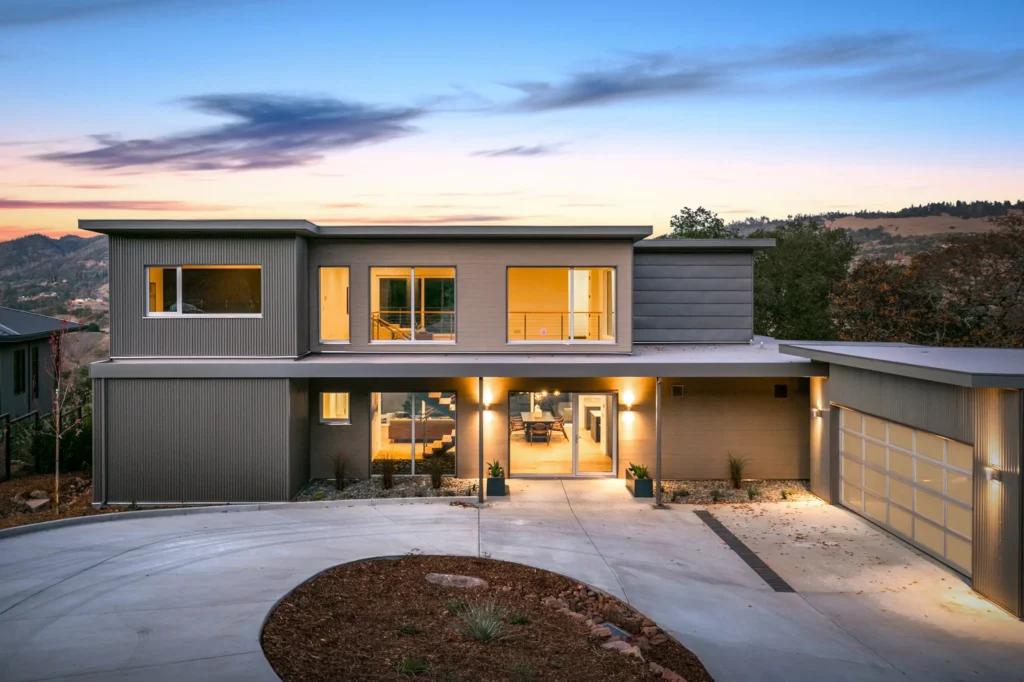Your basket is currently empty!
The Rise of Prefabricated Homes: Efficient and Sustainable Living
Prefabricated homes, once associated with basic and uninspiring structures, have undergone a remarkable transformation in recent years. Today, they are at the forefront of efficient and sustainable living solutions, offering a range of benefits that appeal to homeowners and designers alike. This article explores the rise of prefabricated homes and the innovations driving their popularity. From improved construction techniques to energy efficiency and customization options, prefabricated homes are revolutionizing the way we think about sustainable and efficient living.

Streamlined Construction: Speed and Efficiency
Prefabricated homes are constructed in a controlled factory setting, utilizing advanced manufacturing processes. By pre-building components off-site, construction time is significantly reduced. This streamlined approach minimizes delays caused by weather conditions, reduces waste, and allows for precise quality control. The efficiency of prefabrication translates into shorter construction timelines, enabling homeowners to move into their new homes faster.
Energy Efficiency: Sustainable Living
Prefabricated homes excel in energy efficiency, offering superior insulation, airtightness, and thermal performance. Precise construction techniques, along with the use of high-quality materials and advanced insulation systems, contribute to reduced energy consumption and lower utility bills. Additionally, prefabricated homes can be designed to incorporate renewable energy sources, such as solar panels, further reducing their carbon footprint and promoting sustainable living.
Design Flexibility: Customization and Adaptability
Contrary to popular belief, prefabricated homes offer a high degree of design flexibility and customization. Modern prefabrication methods allow for a wide range of architectural styles, layouts, and finishes. Homeowners can personalize their homes with various interior and exterior options, ensuring that their prefabricated home reflects their unique tastes and preferences. Additionally, prefabricated homes can be easily expanded or modified to accommodate changing needs, making them adaptable to evolving lifestyles.
Waste Reduction: Sustainable Construction Practices
Prefabricated homes are inherently more sustainable due to their efficient use of materials. Factory production allows for accurate material estimation, minimizing waste generated during construction. Additionally, any excess materials can be recycled or reused, reducing the environmental impact associated with traditional on-site construction. Prefabricated homes also generate less construction site debris and disturbance to the surrounding environment, promoting a cleaner and greener construction process.
Quality Control: Consistency and Craftsmanship
Prefabricated homes benefit from strict quality control measures implemented in the factory environment. Every component is meticulously crafted and inspected to meet industry standards. The controlled manufacturing process ensures consistency in construction, resulting in a higher level of precision and craftsmanship. Homeowners can have confidence in the durability, structural integrity, and overall quality of their prefabricated homes.
Affordability: Cost-Effective Living
Prefabricated homes often offer a cost-effective alternative to traditional construction methods. The efficiency and speed of prefabrication translate into reduced labor costs and minimized construction time. Additionally, the controlled factory environment enables better cost control and more accurate budgeting. With prefabricated homes, homeowners can enjoy the benefits of a quality, custom-built home at a more affordable price point.
The rise of prefabricated homes represents a significant shift in the housing industry, offering efficient, sustainable, and customizable living solutions. From streamlined construction and energy efficiency to design flexibility, waste reduction, quality control, and affordability, prefabricated homes have evolved into a practical and appealing choice for homeowners seeking a more sustainable and efficient lifestyle. As the industry continues to innovate and advance, prefabricated homes are poised to play an increasingly prominent role in the future of housing, reshaping our perceptions of what is possible in modern home design and construction.
Leave a Reply